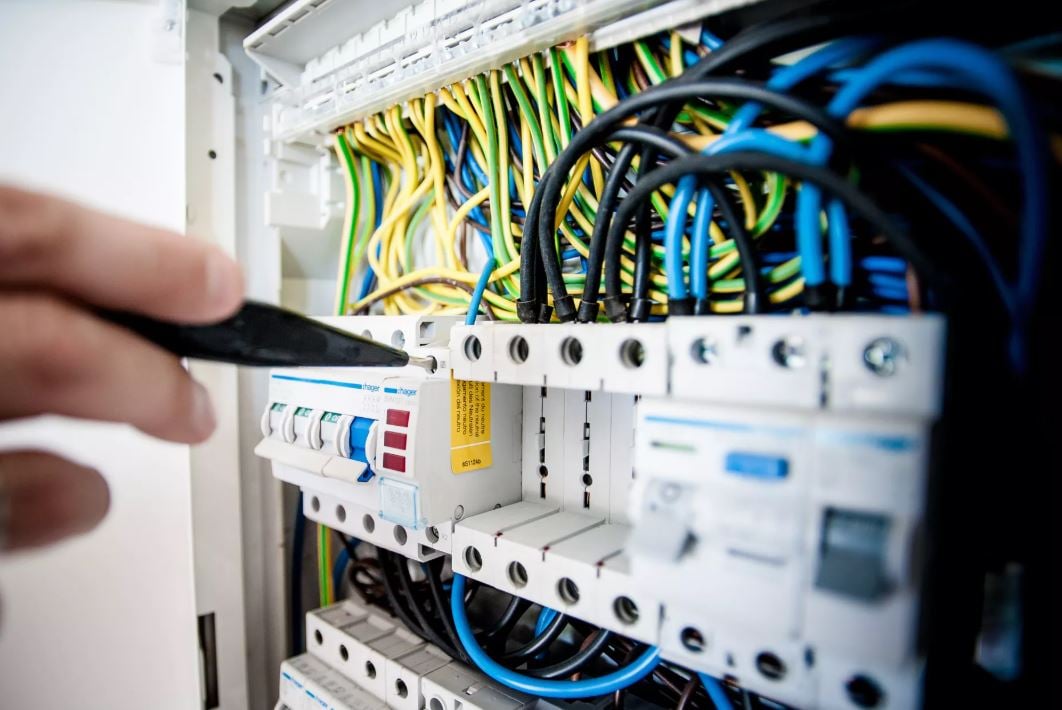
Whether it’s a power outage or an electrical fire, electrical emergencies pop up in many guises. Yet, regardless of what you face, keep your cool and stay ready. Foreknowledge on swinging these situations towards safety could downgrade a potential catastrophe into a simple bump in the road.
The Importance of Electrical Safety
Remember, safety first. Electricity, potent and forceful, demands respect. Slip-ups can turn complicated in a flash. Therefore, maintaining safeguarding habits helps to keep you and your household safe. Keep appliances away from water, never touch any electrical equipment with wet hands, and always obey clear warning signs regarding electricity usage.
Identifying Common Electrical Emergencies
Being able to identify common electrical emergencies helps in taking quick actions. Typical emergencies may include frequent power trips, persistent electrical sparks, unusual noises from appliances or outlets, overheated fixtures or wires and complete power outages.
Each bears its own typical signature – a burning smell might denote overheating while repeated tripping could suggest an overloaded circuit.
Initial Steps in Handling Electrical Emergencies
It’s crucial that your immediate reaction is both calm and informed. Switching off the devices involved might stop some issues in their tracks, such as sparks or overheating.
Do your best to remove everyone from any potential harm if the situation seems serious and prepare to call for professional help from emergency electric services at The Local Electrician.
The Role of Circuits and Fuses
Knowing your way around circuit breakers and fuses can save your day during electrical emergencies. These key components are designed as safety features to prevent electrical shocks or fires caused by overloading circuits or short circuits; they hinder excessive currents by interrupting the flow.
Proper Usage of Surge Protectors
Invest in decent surge protectors for all significant appliances – they regulate voltage spikes that may otherwise damage fragile electronics or even cause fires. Correct utilization extends beyond merely plugging devices in – remember not to overload them beyond their rated capacity.
Recognizing Overloaded Circuits
If your circuit breaker habitually trips upon the usage of specific appliances, this is a grave indication of overloaded circuits – too much power drawn through the same path. This creates heat and potential fire hazards as those wires might not be equipped for such loads.
Dealing with Power Outages
Outages can occur because of bad weather or local faults – stay connected with neighborhood alerts concerning maintenance operations or expected interruptions due to weather events.
Effective Responses to Electrical Fires
In an unfortunate event when facing an electrical fire, cut off the electricity supply if safely possible by switching off your main breaker. However, make sure you totally disregard water as that can result in electrocution – use a fire extinguisher instead; a class C extinguisher specifically designed for fires initiated by energized electrical equipment.
Using A Multimeter: Essential Knowledge
Having essential knowledge about using a multimeter becomes useful when you have suspected gadget malfunctions or outlet problems – it measures voltage and resistance which helps diagnose these issues accurately.
When to Call a Professional Electrician
Sometimes you must acknowledge that professional involvement is necessary for personal safety and preventing further complications; recurring troubles hint towards deeper issues better left attended by professionals.
Preventive Measures Against Electrical Emergencies
Adopt protective measures such as routine checks on appliance conditions, keeping safe distances between appliances and flammable materials, refraining from overloading outlets, and consider investing in arc-fault circuit interrupter (AFCI) breakers providing additional protection from sparking (arcing faults).
Regular Home Electrical Maintenance
Prevention is indeed better than reaction – maintaining regular inspections on all things electric at home like verifying ground connections on outlets are firm, ensuring GFCI outlets trip properly during tests, and monitoring irregular activity with circuit breakers keeps unexpected emergencies at bay.
Importance of Ongoing Learning about Electricity
Continue embarking on a journey of knowledge when it comes to electricity – understand terminologies better, and learn problem-solving skills more efficiently; it proves rewarding eventually.
The Value of Expert Guidance
Even as you embrace a can-do attitude toward managing electrical emergencies, remember the hazards involved. Utilize expert advice— for understanding and help. You don’t have to handle your home’s electrical issues alone; seasoned electricians are trained to handle tricky situations with their years of experience.
Developing an Emergency Action Plan
Prepare an electrical emergency plan. This practical measure includes identifying household risks, marking shutoff points, listing emergency contacts, and establishing at least two exits per room. Prompt action in minutes of crisis, guided by your plan, is critical for safety.
Summing It Up
Investigating electrical emergencies might sound daunting but having precise know-how empowers you immensely enabling strategic behavior during times where actions may impact life-saving outcomes. Do remember though, where doubts persist, defer to experts rather than risking yourself – after all, courage also lies in knowing when seeking professional advice outweighs DIY endeavors.
Interesting Related Article: “2 Key Home Inspection Tasks for Every First Time Buyer“
